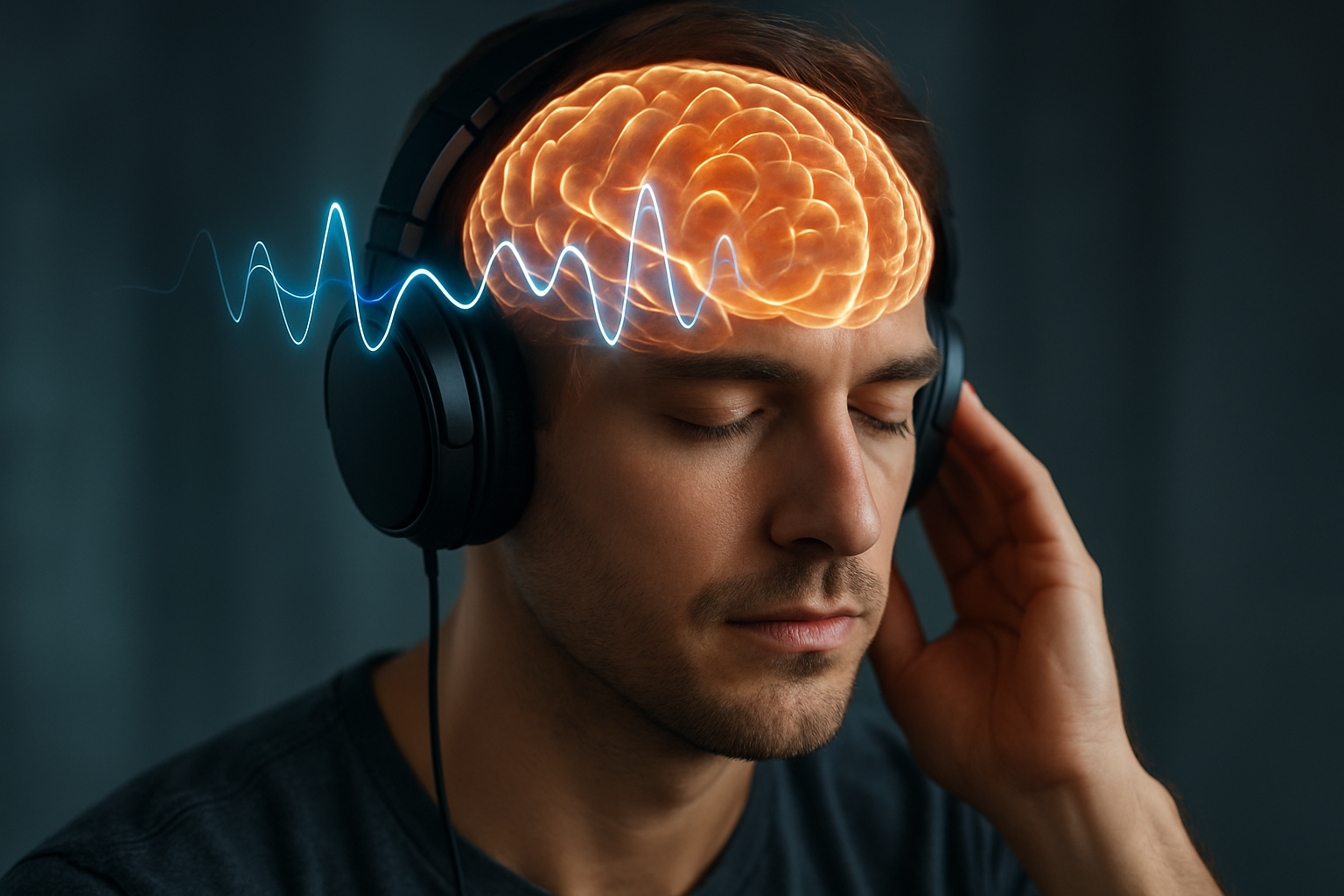Binaural Beats: Tuning Your Brain for Optimal Wellness
Can sound waves really influence your mental state and overall well-being? The fascinating world of binaural beats suggests they can. This cutting-edge auditory technique is gaining traction among health enthusiasts and neuroscientists alike, promising a range of benefits from improved focus to better sleep. But what exactly are binaural beats, and how do they work their acoustic magic on our brains?

The Science Behind Binaural Beats
At the core of binaural beats’ effectiveness is the concept of brainwave entrainment. Our brains operate at different frequencies depending on our mental state. For example, when we’re alert and focused, our brains produce beta waves (13-30 Hz), while during deep sleep, they produce delta waves (0.5-4 Hz). Binaural beats work by encouraging the brain to synchronize its electrical activity with the perceived beat frequency, potentially shifting our mental state.
Research into binaural beats has shown promising results. A 2019 study published in the journal Psychological Research found that listening to binaural beats in the beta range (16 and 24 Hz) was associated with improved attention and working memory performance. Another study in Frontiers in Human Neuroscience suggested that alpha-frequency binaural beats could enhance creativity and problem-solving abilities.
Applications in Stress Reduction and Relaxation
One of the most popular applications of binaural beats is in stress reduction and relaxation. By using lower frequency beats that correspond to theta (4-8 Hz) or alpha (8-13 Hz) brainwaves, listeners can potentially induce a state of calm and relaxation. This has led to the development of numerous binaural beat meditation and relaxation apps and recordings.
A 2017 study in the journal Alternative Therapies in Health and Medicine found that participants who listened to theta-frequency binaural beats showed reduced anxiety levels and improved mood compared to those who listened to a placebo sound. This suggests that binaural beats could be a valuable tool in managing stress and promoting emotional well-being.
Enhancing Cognitive Performance
Beyond relaxation, binaural beats are being explored for their potential to boost cognitive performance. Beta-frequency binaural beats, in particular, have shown promise in enhancing focus, alertness, and problem-solving abilities. This has led to their use in productivity-enhancing soundtracks and study aids.
A 2017 review in the journal Psychological Research examined multiple studies on binaural beats and concluded that they could potentially improve attention, memory, and other aspects of cognitive performance. However, the researchers also noted that more rigorous studies are needed to fully understand the extent and mechanisms of these effects.
Sleep Improvement and Binaural Beats
Sleep disorders affect millions of people worldwide, and binaural beats are emerging as a potential non-pharmacological intervention. By using delta-frequency beats (0.5-4 Hz), which correspond to deep sleep brainwaves, some researchers believe it’s possible to improve sleep quality and duration.
A small study published in Frontiers in Human Neuroscience in 2020 found that participants who listened to delta-frequency binaural beats before bed reported improved sleep quality and felt more refreshed upon waking. While these results are promising, larger-scale studies are needed to confirm the effectiveness of binaural beats for sleep improvement.
Integrating Binaural Beats into Your Wellness Routine
If you’re interested in experimenting with binaural beats, it’s important to approach them as part of a holistic wellness strategy. Here are some tips for incorporating binaural beats into your routine:
-
Start with short sessions: Begin with 15-30 minute listening sessions to see how your body and mind respond.
-
Choose the right frequency: Select beats that correspond to your desired mental state (e.g., theta for relaxation, beta for focus).
-
Use quality headphones: To experience the full effect of binaural beats, stereo headphones are essential.
-
Create a conducive environment: Minimize distractions and find a comfortable space to listen.
-
Combine with other practices: Use binaural beats in conjunction with meditation, deep breathing, or other relaxation techniques.
Brainwave Basics
-
Delta waves (0.5-4 Hz): Deep sleep, healing, and regeneration
-
Theta waves (4-8 Hz): Relaxation, meditation, and creativity
-
Alpha waves (8-13 Hz): Light relaxation, improved mood, and learning
-
Beta waves (13-30 Hz): Alert, focused, and engaged
-
Gamma waves (30-100 Hz): Higher cognitive functions and peak performance
As research into binaural beats continues to evolve, this auditory technology holds promise as a non-invasive tool for enhancing various aspects of mental and emotional well-being. While not a magic bullet, binaural beats offer an intriguing avenue for those seeking to optimize their cognitive function, manage stress, and improve sleep quality. As with any wellness practice, it’s essential to approach binaural beats with an open mind and a critical eye, staying informed about the latest research and consulting with healthcare professionals when necessary. By tuning into the potential of binaural beats, we may be opening the door to a new frontier in acoustic wellness.






